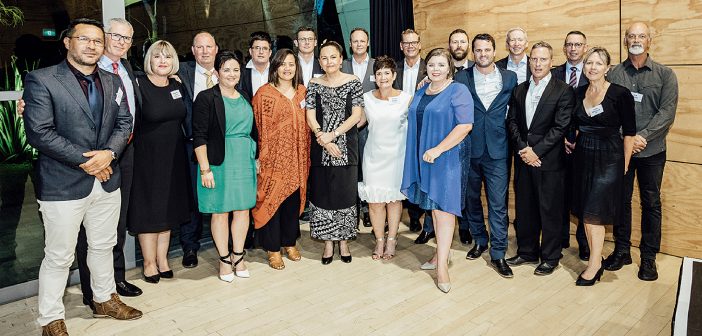A leadership programme that has commitment to community as “part of its DNA” has produced its latest cohort of graduates, bringing the total to 79 over four years.
The Elevate programme sees Waikato businesses paying for a place on the course for a leader from their own organisation as well as a place for a community organisation member.
That sees both profit and not-for-profit leaders benefiting together from the course, which is run by Community and Enterprise Leadership Foundation (CELF) in partnership with University of Waikato Management School.
“The powerful factor in all of this is having those two groups of people come together and learn off each other and with each other, about themselves, their organisations and their community,” CELF director Tania Witheford says.
“[What] we are seeing for those businesses that are part of CELF is the undertaking that their commitment to community is part of their DNA.”
For the community organisations, meanwhile, the course offers an opportunity that they would struggle to fund themselves. “Their passion drives them, but unfortunately they don’t have the funding for that professional development. So that’s where the CELF proposition opens up that doorway.”
The investment of $25K secures two places on the programme with potentially huge benefit for both the business and the community.
“Our funding model is unique, I haven’t come across anything like it. I think that is very important because it demonstrates from a business perspective how they value leadership and the fact they can identify that community is an important part of their success and their future success,” Witheford says.
The group of 18 in the Elevate Leadership Class for 2019 graduated in April at the Gallagher Academy of Performing Arts.
The evening saw a moving tribute to CELF co-founder Bernie Crosby from fellow founder David Irving, as Crosby, who recently retired as a trustee, was made a patron of the organisation.
Crosby was a co-founder of Prolife Foods and Irving had founded Icehouse and was a former Heinz-Watties boss. The two friends had identified that Waikato could benefit from increased leadership capability, and the breakthrough moment came when they identified the co-funding model.
The graduation also included a heartfelt speech from 2018 graduate Kingsley Fink, Tristram Marine general manager, about how the course has changed his life and its positive impact on his company.
Graduates of the 2019 course Nathan Collins (Habitat for Humanity) and Chris Horan (BNZ) also spoke, and acknowledged the businesses who willingly opened their doors and the leaders of those businesses who candidly shared their leadership experiences, successes and failures with the class.
Over the four years Elevate has been running, relationships formed during the course have endured, with cohorts continuing to meet regularly.
Witheford, who started in her role last year after several years as chief executive of Cambridge Chamber of Commerce, wants to also build cross-cohort engagement now that the total number has reached 79.
The course starts with self-evaluation and a residential programme to build connections with others on the course. That is followed by monthly visits to businesses and CEOs.
Topics for the 2019 cohort included change management and a section on design and innovation, says Witheford, who as well as being director was a participant on the course.
Each business visit is followed by a day of workshop or classroom learning, with the practical and theory sides feeding into each other.
“All the way along we were encouraged to use each other as mentors, create that relationship to be able to continue the learning from each other.”
In some cases, she says, participants were able to make changes in their organisation while still on the course.
“One of them went back and took the learnings from their first three or four sessions, about engaging their team and ensuring they had voice, to create an entire strategic plan that took into consideration revisiting their vision. It was massively impressive,” she says.
She also refers to Rangimahora Reddy, whose community organisation, Rauawaawa Kaumatua Charitable Trust, has benefited hugely from the $12,500 investment that her place on the 2018 course cost. The trust was fund-raising for a building renewal project, and Rangimahora was able to build on her CELF experience and cohort contacts to undertake crowd-funding that produced $100,000 towards the project.
“For me, personally, successful business environments always help foster a strong, vibrant community,” Witheford says.
• CELF is taking applications for its next course, which starts in August. Applicants from both profit and not-for-profit sectors can apply using the CELF website, and acceptance is based on an interview process.




